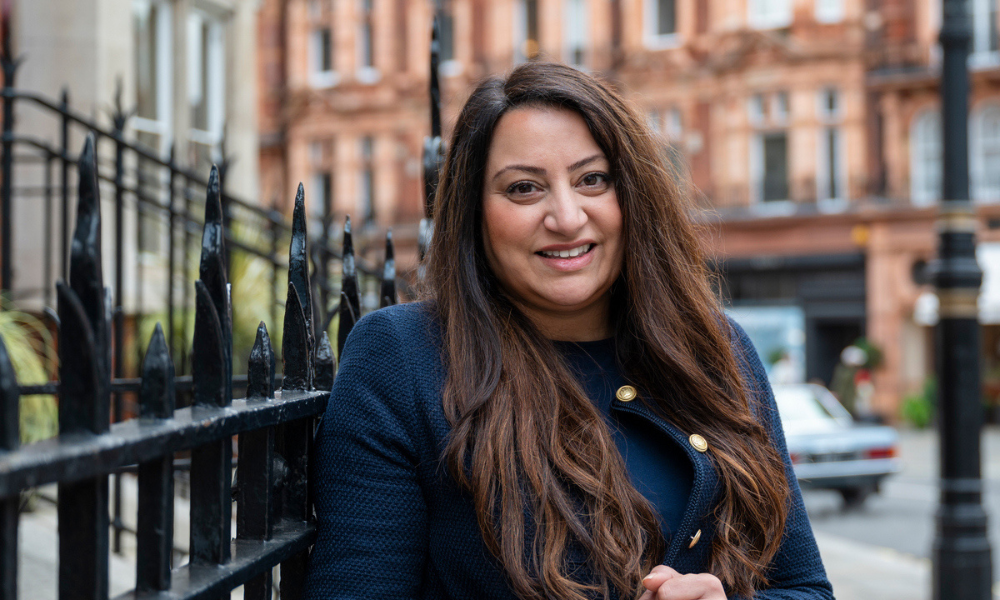Jibes from Trump running mates aside, this is an area full of possibilities

While the comment from Donald Trump’s new Republican running mate J. D. Vance that the UK is a ‘truly Islamist country’ may have been a jibe, there is no doubt that Britain is in a strong position to maximise the potential of Sharia-compliant mortgages.
The UK’s financial services industry is beginning to grasp the business benefits of Islamic property loans, with a ready customer base for these products.
According to the 2021 census, the Muslim population of the UK is 3.87 million, or 6.5% of our total – which indicates there’s a strong pipeline of domestic business for savvy brokers.
Indeed, according to a 2022 report from an industry-led body, TheCityUK, global Islamic banking assets totalled $2.8 trillion, of which $7.5 billion were UK-based. In Europe (excluding Turkey) the UK made up 85% of total European Islamic banking assets.
Assets under management of global Islamic funds experienced an average annual increase of 13% in the four years leading up to 2021, and by the end of that year, there were 68 Islamic fintechs in Europe, 45 of which were headquartered in the UK.
What is the business potential for Sharia-compliant finance in the UK?
Zeenat Shaffi, senior business development manager, at Nomo, a digital Sharia-compliant bank, believes Britain is in a prime position to attract business from countries in the Gulf Cooperation Council (GCC) – such as United Arab Emirates (UAE), Oman and Bahrain.
“By capitalising on its leading position in the sector, the UK can increase its appeal to people from the GCC – where around nine in 10 people are Muslim,” said Shaffi (pictured). “We want to see policymakers build on the successful expansion of the UK’s leading Islamic finance market.”
Since 2003, the UK government has passed legislation like the 2005 Finance Act, to make the Islamic finance sector as tax efficient as its conventional counterpart. Shaffi acknowledged that Sharia-compliant banking has faced its own challenges in recent years.
“During periods of economic and political turbulence, lenders tend to drop business which carries a higher level of risk,” she explained. “Many, therefore, opted not to lend to clients in the UAE when the country was put on a sanction list last year, but with the rates cycle now appearing to bottom-out in a range of markets, most have returned.
“Conversely, the UK’s stable regulatory environment – where deposits are guaranteed by the Financial Conduct Authority – means that GCC customers often see it as a ‘safe haven’ for investment.”
Read more: Access FS teams up with Nomo Bank to offer Sharia finance
What is shariah-compliant banking?
Launched in 2021, Nomo is a cross-border bank designed for customers with international lifestyles who want to manage their money through smart technology. It adheres to Islamic banking principles – which prohibit the collection and payment of interest - and its property finance products mean customers from the GCC can purchase buy-to-let and residential properties in the UK.
“In a world where customers increasingly want to act responsibly when making financial decisions, being Sharia-compliant puts us in an especially strong position to deliver,” Shaffi noted.
In her role at Nomo, Shaffi is seeking to increase brand awareness and support brokers to deliver customer service for their clients. The most successful advisers are the ones that network the most, she suggested, with a sophisticated understanding of the property finance products available on today’s market.
“For a growing number of brokers, this includes knowing the basic tenets of Islamic finance,” Shaffi said. “Nomo regularly hold broker training sessions, which can provide a confidence boost for interacting with clients for whom Sharia finance is a priority.”
She remained upbeat about how the wider mortgage industry would perform over the next 12 months.
“We’ve seen something of a return to normal following a period of volatility last year,” Shaffi observed. “Brokers I speak to are experiencing an uptick in new business enquiries. From conversations with contacts in the broker community, confidence is growing that the rates environment will become more favourable for buyers and brokers alike. Consumer confidence has been enhanced by lenders easing their requirements.”
Shaffi said she had learned in her to career to challenge where appropriate and stand up for what she believes – both good qualities, you might say, for extolling the benefits of what, for many, is a new form of lending.



